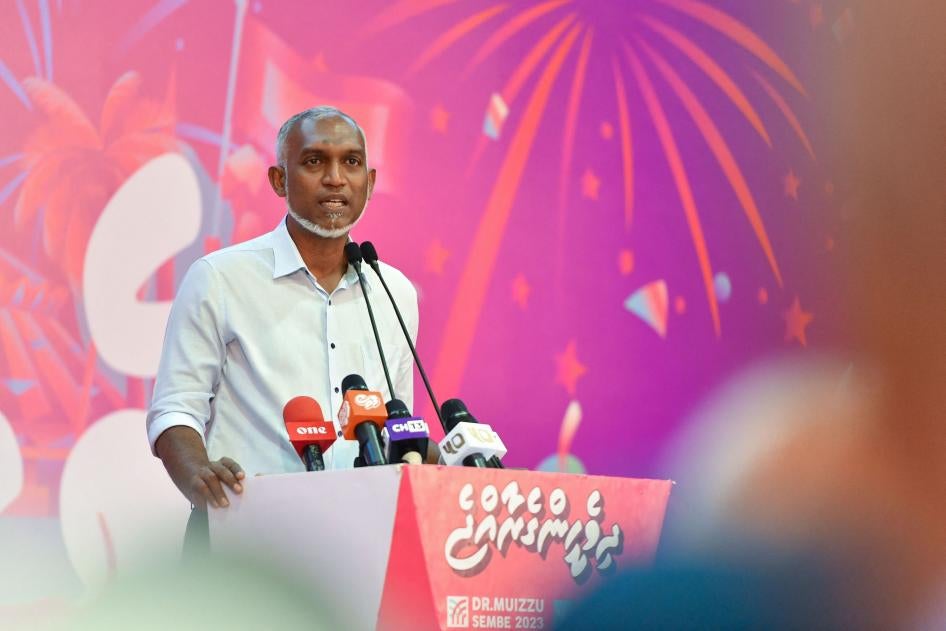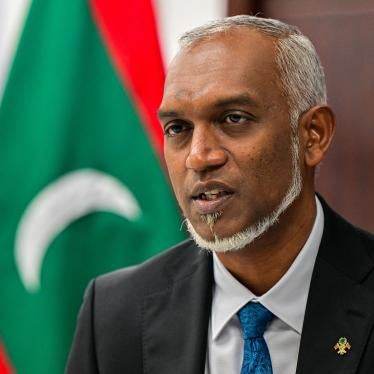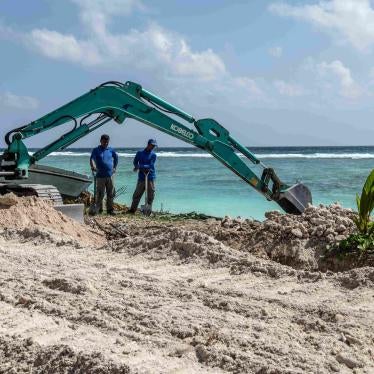This week, new Maldives President Mohamed Muizzu will travel to the COP28 climate conference in Dubai with hopes this year’s event will spur long-awaited action on climate change.
President Muizzu, who was inaugurated on November 17, has called for increased international cooperation and finance on climate-related issues to assist small island nations like the Maldives.
“[E]very coral that’s bleached, every piece of land that’s contaminated, every fish that dies because of this climate change should be properly addressed. And that’s not the way it’s going so far,” Muizzu said in an interview.
The Maldives, with 80 percent of its land less than one meter above sea level, is one of the most vulnerable countries in the world to the effects of climate change. Climate change-related impacts, such as increased coastal erosion and saline intrusion caused by sea-level rise, are increasingly jeopardizing the lives and livelihoods of Maldivians, including by straining the country’s already limited freshwater supply.
United Nations Secretary-General Antonio Guterres has warned that in the coming decades “[l]ow-lying communities and entire countries could disappear forever" due to rising sea levels.
Muizzu’s plans to mitigate the impact of climate change for Maldivians include undertaking large-scale land reclamation projects and surrounding its islands with “fortress-like” concrete sea walls to make at-risk areas safe.
Human Rights Watch has found that such reclamation projects in the Maldives are often rushed and fail to adhere to the government’s own environmental protection laws, including mandatory environmental impact assessments designed to prevent harm to island residents and protect the natural environment. Without adequate protection measures, including monitoring and consultation with affected communities, these projects can heighten climate-related risks to the lives and livelihoods of already vulnerable communities, including by exacerbating flooding.
Like many other small island nations, the Maldives needs the international community’s support to tackle climate change. Muizzu is right to call on the world’s biggest CO2 emitters at COP28 to provide support and financial assistance to countries like the Maldives that bear a disproportionate impact from the effects of climate change. However, for the Maldives to be a more effective champion of climate action on the international stage, Muizzu also needs to ensure his government’s domestic policies don’t undermine their obligations to the most vulnerable.







